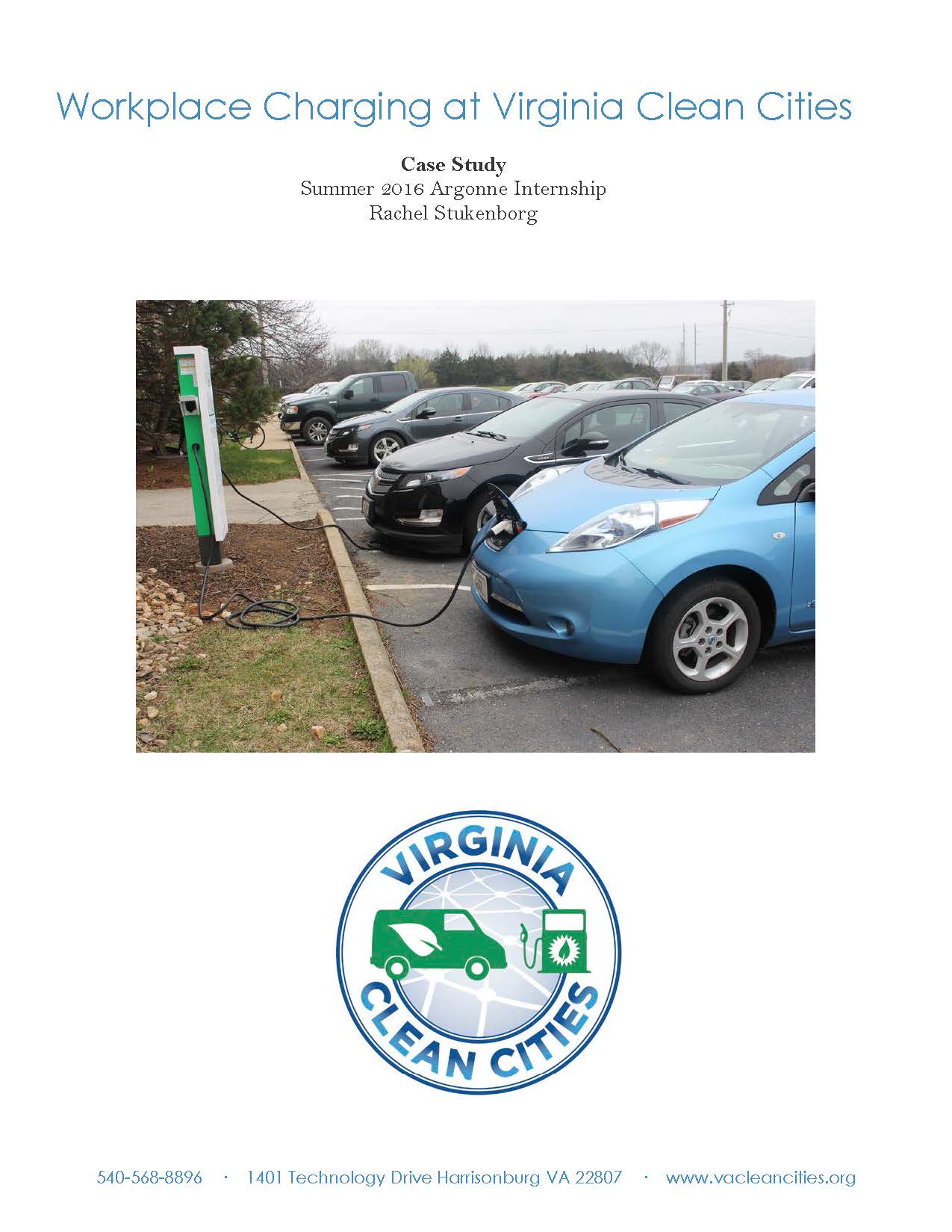Virginia Department of Mines, Minerals and Energy, in cooperation with the Departments of Environmental Quality, Motor Vehicles, and Taxation launched a summer 2020 Electric Vehicle Incentive Working Group. The focus of this effort the feasibility of an electric vehicle rebate program for Virginia, under HB717. Group members are contributing to the what, why, and how an EV incentive could operate in Virginia.
Continue Reading →Mid-Atlantic Biofuels Infrastructure Partnership
 In 2015, Virginia and Maryland responded to a funding opportunity from the U.S. Department of Agriculture (USDA) under the Biofuel Infrastructure Program to form a two-state, Mid-Atlantic Biofuels Infrastructure Partnership (BIP) to install biofuel fueling pumps at 40 fueling stations. The Virginia Department of Mines, Minerals and Energy (DMME) administered the Program with assistance of Virginia Clean Cities. Program partners included ...
In 2015, Virginia and Maryland responded to a funding opportunity from the U.S. Department of Agriculture (USDA) under the Biofuel Infrastructure Program to form a two-state, Mid-Atlantic Biofuels Infrastructure Partnership (BIP) to install biofuel fueling pumps at 40 fueling stations. The Virginia Department of Mines, Minerals and Energy (DMME) administered the Program with assistance of Virginia Clean Cities. Program partners included ...
Electric Vehicle Charging for Tourism
Hotels, conference centers, and tourist destinations throughout Virginia are looking seriously at electric vehicle charging stations for their visitors and customers. The process of installing an electric vehicle charger is affordable and simple and can lead to new business.
To view this report click here or click the image to the right.
Continue Reading →Virginia Clean Cities 2018 Annual Operating Plan
This year VCC plans to advance five main goals in its annual operating plan; 1) Improve the Commonwealth’s air quality by increasing the reduction in gallons of gasoline equivalents and greenhouse gas emissions, 2) Hold events and raise awareness through outreach to reduce alternative fuel barriers year-round, 3) Serve in a leadership role for the deployment of the Commonwealth of Virginia’s ...
Continue Reading →Virginia Clean Cities Workplace Charging Case Study 2016
Virginia Clean Cities provides a charging station to its employees and to the general public. This case study examines the costs and benefits of usage of the charging station by four drivers.
To view this report, please click here or click the image to the right.
Continue Reading →
Virginia Clean Cities’ DC Fast Charger Deployment Project 2014-15
Virginia Clean Cities and its private sector partners undertook a project to deploy six DC Fast chargers in 2014. By the end of August 2015, the project successfully found site hosts and deployed 21 DC Fast chargers throughout Virginia. This report examines this project and sheds light on the processes and challenges of installing a publicly-available DC Fast charger.
To view this report, ...
Continue Reading →Alt Fuel Signage Policies and Programs in GA, KY, NC, SC, TN, and VA
The purpose of this report and its related activities is to clarify road signage procedures, take account of existing signage for stations offering alternative fuels, and coordinate activities to enhance alternative fuel signing opportunities for the motoring public. As part of the U.S. Department of Energy sponsored Alternative Fuel Implementation Team (AFIT) project led by the NC Solar Center/NC State University, ...
Continue Reading →Alternative Fuels Tax Information
Virginia divides fuels into two categories: motor fuels and alternative fuels. Motor fuels include gasoline, diesel fuels, blended fuels, and aviation fuels. Alternative fuels are defined as a combustible gas, liquid, or other energy source that can be used to generate power to operate a highway vehicle and that are not motor fuels. Suppliers, importers, blenders, providers, retailers, and bulk users of alternative fuel are subject to taxes ...
Continue Reading →Virginia Alternative Fuel Maps: A GIS Based Analysis of Virginia’s Alternative Fuel Infrastructure
Virginia Clean Cities utilized U.S. Department of Energy Alternative Fuel Vehicle Station Locator data in partnership with the Clean Cities Workforce Development Program and the effort of Brandon Walraven to advance a series of alternative fuel infrastructure, production, and 2014 deployment maps. These maps are intended for the purposes of development planning and analysis, and all information presented here is available ...
Continue Reading →Virginia Clean Fuels Partnership
The Virginia Clean Fuels Partnership support from 4-VA enabled James Madison University, Virginia Tech, and the University of Virginia to better work together on a future of sustainable federal grant opportunities from a range of federal agencies. By collaborating and acquiring an initial comprehensive inventory of ongoing programs and capacities, the consortium of universities will be able to advance collaborative or individual projects in the future with greater success. Meetings and collaborations served as intellectual and organizational catalysts for James ...
Continue Reading →






